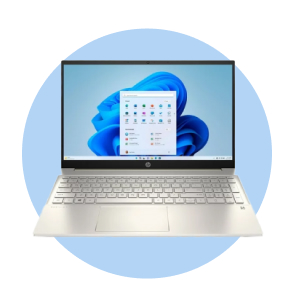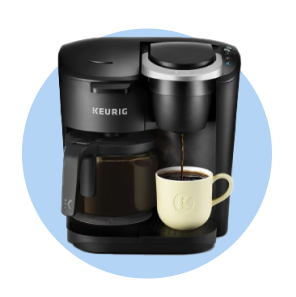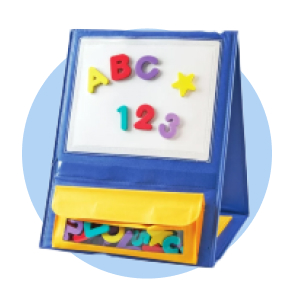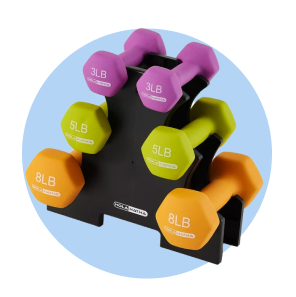
7 Features of the Best Small Business Security Systems
From wireless cameras to mobile apps
As a small business owner, protecting your employees and your property is one of the most important things you can do. Investing in the best small business security system for your company provides peace of mind. A good security system can monitor your premises, alert you to any unusual activity and keep potential intruders at bay. Just having a system in place is often enough of a deterrent to prevent any wrongdoing.
The best security systems do more than simply safeguard your goods, though. Wireless video cameras can observe remote locations. Environmental monitoring can help keep your staff healthy. Mobile alerts can apprise you of potential incidents, no matter where you are. These, and similar features, can be integral components of your company’s security solution.

7 features for the best small business security system
1. Wireless cameras
Wireless cameras can be an integral part of the best small business security system when placed at key locations around your business, such as entry points, loading docks and parking lots. Providing camera coverage in hard-to-see areas can be a great way to make sure that your business stays protected and your employees feel safer. Cameras can also monitor your premises 24/7, and either save that information to a dedicated hard drive or transmit it online. Constant monitoring can deter potential criminals, as well as alert security personnel instantly if something goes wrong.
While wired security cameras can also broadcast and record footage, they require a nearby power source, which limits where you can place them. Conversely, you can put wireless cameras just about anywhere, and move them around as needed. Just be aware that you’ll need to recharge them or replace their batteries periodically.
2. Alarms
Alarms serve three useful purposes in a small business security system. The first is that a sudden, loud, repeating sound is often enough to scare potential troublemakers away from your property. The second is that other people in the area can hear an alarm and call law enforcement as needed. The third is that alarms are almost always tied to some kind of other security measure, whether it’s an alert on a video recording or a text notification in a mobile app. If your business has anything worth stealing, an alarm is an excellent first line of defense.
There are many different types of alarm systems available, and some of them may be better suited to your business than others. Some alarms work in conjunction with video surveillance systems. Some are motion-activated. Some respond to physical tampering. Some offer all of these features. Do some research to discover which type would best protect your assets.
3. Environmental alerts
Criminals aren’t the only potential threat to the well-being of your business and staff. Consider security systems that also offer environmental monitoring, such as carbon monoxide and smoke detection. Some security systems also double as fire alarms, and can even alert local fire departments if there’s an issue. If you work with particularly flammable materials, you could consider installing an interior sprinkler system—and depending on your state and local laws, you may actually be required to do so.
4. Access control
With an access control system, you can decide who can and can’t enter the building. This ensures that employees can get in, while unauthorized individuals have to stay outside. An access control system can be as simple as a set of keys, or as complex as a biometric scanner. The level of sophistication will depend on what your budget is and how sensitive your business assets are.
Electronic keycards and card readers are common access control tools, as they’re easy to store, relatively difficult to steal and simple to deactivate if lost. Keypads that require a passcode are also a common and somewhat foolproof option—provided that you use complex codes and change them frequently.
5. Cybersecurity systems
Protecting your company’s physical space is only part of building a comprehensive security system. The best security for small businesses also needs to safeguard your digital assets. Investing in a cybersecurity solution is an excellent way to keep your electronic files safe. In fact, by strengthening your cybersecurity, you can make your physical security better in turn. Think of how many blueprints, manifests, video records, employee schedules and passcodes are probably saved somewhere in your computer system.
Like other security system components, cybersecurity represents a diverse and complex field. Some programs may just sweep a single computer for viruses; others can monitor entire networks and extend their protection to cloud applications on employees’ personal devices. Certain cybersecurity suites can also monitor Internet of Things (IoT) devices, including “smart” video cameras.
6. Mobile alerts & access
You can keep watch over your business while you’re there, but you’ll have to leave eventually. Whether you take an extended business trip or simply step out for the night, it’s important to stay connected in case something happens. A security system that can send mobile notifications to your smartphone allows you to address any security concerns quickly, even if you’re halfway across the world.
If your business is secure, receiving real-time updates on a mobile device can put your mind at ease. On the other hand, if a breach occurs, you can log into your security system remotely and start setting things right. Not every security solution has a mobile app, so this is worth looking into before you buy anything.
7. Integration
As your small business grows, your security system may become more complex and feel overwhelming. Using separate components—cameras, alarms, locks, keycards and so forth—from several different providers can be difficult to manage. By integrating these solutions in a centralized hub, they become more streamlined and easier to track.
Generally speaking, the easiest way to ensure integration between your products is to buy them all from the same manufacturer. Alternatively, you could hire a third-party security vendor to set up your system. Most big-name providers create integrated systems, complete with software hubs that allow you to monitor every component. Be ready to replace old or obscure hardware, as these devices may not be able to integrate with newer systems.
Choosing, maintaining & scaling your security system
Choosing the best small business security system for your company will require some time, effort and money, no matter how you approach it. With so many potential components, so many ways to combine them and so many physical space configurations, there is no such thing as a one-size-fits-all solution.
Instead, consider which assets you need to protect, what risks could threaten those assets and how much you can spend to keep them safe. A company with large physical warehouses, for example, may need to spend a lot of money on high-resolution cameras, while a company that keeps extensive online records may need to focus its budget on cybersecurity. Hiring an outside consultant can help at this stage, whether or not you ultimately outsource your security to a third-party vendor.
Once your security system is in place, you’ll also need to take care of it over time. Almost all devices require physical maintenance, whether it’s cleaning a camera’s lens, sanitizing a keypad or replacing batteries in a smoke alarm. Devices with digital components—particularly IoT devices—require frequent firmware and software updates to keep them safe from cyber threats.
Your security system will also need to grow alongside your company. If you expand your physical footprint, you’ll need more cameras, more locks and more alarms. If you move to a larger space or acquire multiple locations, you’ll need to repeat the whole setup process. Each new employee will need the appropriate tools and training. You should keep your hardware and software in good working order, replace components as needed and buy new gear that will integrate easily into your existing system. If managing a larger setup in-house proves too difficult, consider outsourcing the responsibilities to a third-party security vendor.
Build your security system through Walmart Business
It’s easy to create the best small business security system when you have the right supplies. When you sign up for a free Walmart Business account, you can take advantage of low prices on wireless cameras, alarms, locks, keypads, cybersecurity software and more. You’ll also be able to buy supplies in bulk, share your account with multiple users and refer to a full order history for both online and in-store purchases.
If you already have an account, then you can upgrade to a Walmart Business+ membership and save even more. Walmart Business+ offers free shipping,1 free delivery from nearby Walmart stores2 and 2% cash back rewards for purchases of $250 or more.3 All of this can add up to over $500 in savings per year.4
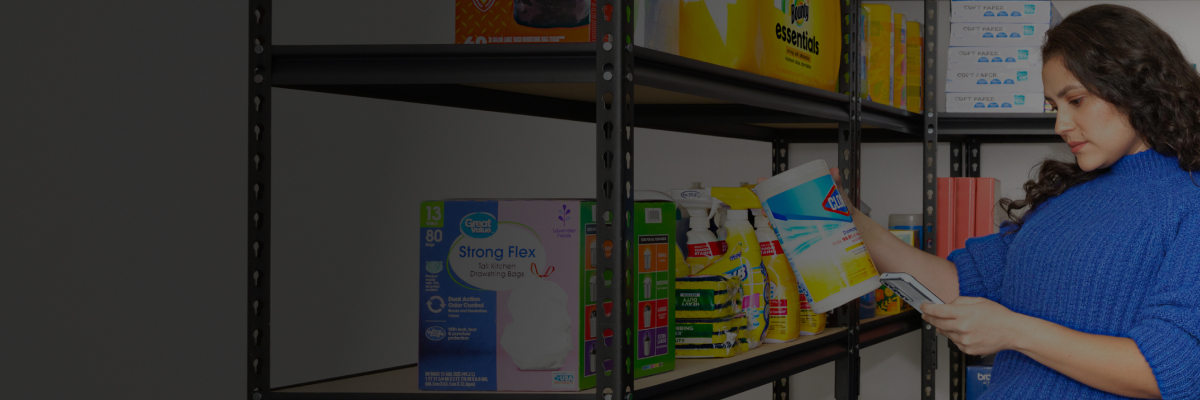
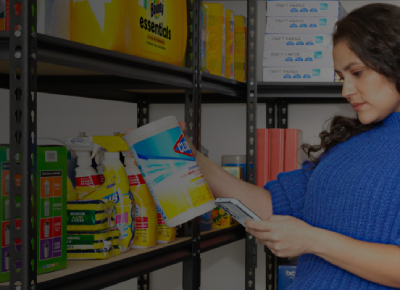
Limited-time offer
Unlock your special promo code
Stay informed on Walmart Business news & get $20 off a $100 purchase!1
1Minimum order of $100. Promo code can be used one time & may not be combined with other offers. Offer not transferable & void where prohibited by law. Customer responsible for all applicable taxes. Offer expires 12/31/2025 at 11:59pm PT. Further restrictions apply. See terms at checkout for details. Promo code offers available in limited quantities. While supplies last.
1 Excludes most Marketplace items, freight and certain location surcharges.
2 Restrictions apply.
3 Rewards can only be used toward future purchases on Walmart Business. Additional terms apply.
4 Savings based on 1 free $35+ delivery order vs. $9.95 fee and 1 free shipping order under $35 vs. $6.99 fee biweekly, plus 2% Walmart Business Rewards on monthly order >$250 (average value of $400).
Exciting news awaits
Hear firsthand about new products, features & promotions.
By clicking submit, you agree to receive emails about Walmart Business and acknowledge you have read and agreed to our Terms of use and Privacy Policy.




